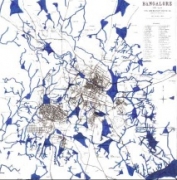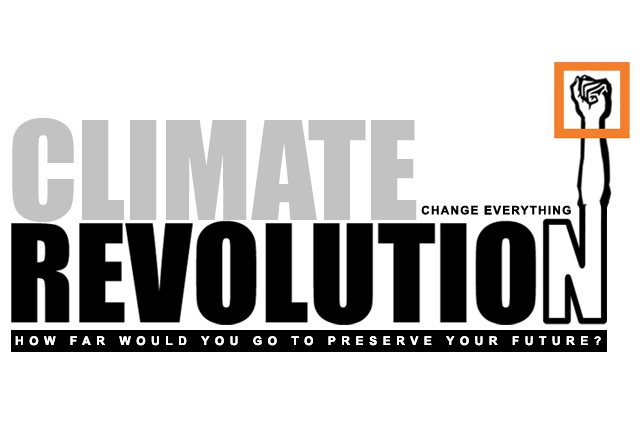/sub-categories/news-and-articles
News and Articles
Rain water harvesting or drain water harvesting - A serious approach to water conservation needed
Posted on 12 Jun, 2010 08:41 PMIF CONSERVATION OF WATER SOURCES, RECYCLE, REUSE IS SERIOUSLY NOT ADOPTED NOW THE TIME IS NOT FAR WHEN WE MAY NEED TO "DRAIN HARVEST" WASTEWATER FOR ALL KINDS OF CONSUMPTIONS.
Historical evolution of tank system in Bangalore city - A presentation
Posted on 12 Jun, 2010 05:54 PM The presentation from the ENVIS - CES (IISc) website, emphasises the important role that the tank system has played in the development of the city of Bangalore and highlights:
The presentation from the ENVIS - CES (IISc) website, emphasises the important role that the tank system has played in the development of the city of Bangalore and highlights:
- The principles behind the working of the tank system
- The process of evolution of the tank system with respect to the growth of the city
- The underlying planning principles that were used in the tank system
- The role and importance of water tanks as an asset to the city
- The relationship between the system of tanks and the city of Bangalore
- The usefulness of the tanks as an important source of drinking water and agriculture in lean periods
Water quality status of rivers Tungabhadra, Cauvery and Kabini - KSPCB (2007)
Posted on 12 Jun, 2010 01:36 PMThese two documents from the KSPCB website, provide monthly water quality status data, for the rivers Tungabhadra, Cauvery and Kabini, monitored between January to June 2007, at various points along the rivers.
The data recorded are Temperature, pH, Dissolved Oxygen (DO), Biochemical Oxygen Demand (BOD), Chemical Oxygen Demand (COD) and Faecal Coliform.
Love for green: Healing the hills with trees - Work of Sachidanand Bharti in Uttarakhand (Video)
Posted on 12 Jun, 2010 12:01 PMLove for green: Healing the hills with trees - Work of Sachidanand Bharti in Uttarakhand
From Tubaah (NDTV Network) website (November 26, 2008).
Sachidanand Bharti is known as the treeman in Uttarakhand, where he has been dedicatedly planting trees since the last 25 years. Hills in Uttarakhand were once barren, but now they are lush green, all due to his efforts. Bharti is a school teacher by profession but his real calling is as a climate crusader.

A daavat in the time of PPR : The mutton bearing lands of the nation are in trouble
Posted on 12 Jun, 2010 09:54 AMThe mutton bearing lands of the nation are in trouble.
Guest Post by: Kurush Canteenwala
It is the week after Holi and we are sitting in Netsinh, 8 kilometers from Ramgadh, 65 kilometres from Jaisalmer City, in Jaisalmer District. Derawar Singh is throwing a daavat for the new tractor that he has purchased, and bakra has been cut for the occasion. Netsinh has a population of 250 families, all of whom are pashupalans, ‘animal caretakers’ and they have been in this location for at least 12 generations. One Net Singh, a common ancestor to most of the village, settled here. Amidst the half day long festivities, the conversation revolves around the growing evidence that they are in the midst of both, an ‘akaal’ and a deadly outbreak of disease. The numbers of bhed-bakri that are dropping dead has not been seen by the elders amongst them in 30 years.
Millions of people worldwide are opposed to plastic bottled water - An alternative solution is here
Posted on 11 Jun, 2010 07:51 PMThe momentum for a better Global drinking Water Environment is increasing.
One way to achieve this Mission is to reduce the global High energy wasteful costs in producing Plastic Bottles, then transporting these products (so-called mineral,spring, volcanic Water) daily to Supermarkets, Newsagents & Corner stores.
Chasing a mirage: Water harvesting and artificial recharge in naturally water-scarce regions - An EPW paper
Posted on 11 Jun, 2010 12:39 PMThis paper refers to the recent plans by the Government of India to undertake artificial recharge of groundwater in over-exploited areas of the country to meet the demands for water and raises certain fundamental questions about the methods used for analysing the hydrological and economic impacts of the interventions.
Irrigation management transfer in India: The processes and constraints - Paper by IRAP
Posted on 10 Jun, 2010 07:12 PMThe paper discusses the evolution of Participatory Irrigation Management (PIM) in India, following the felt need for better irrigation management to prevent water scarcity in many regions in the country.
The irrigation sector was identified as a priority area in the various policy reforms that took place in the water sector in the country.These reforms emphasised the importance of involving end users/farmers in the operation and management of irrigation conveyance systems.
This led to the establishment of the Farmers Managed Irrigation Systems (FAMIS), which aimed at improving the overall efficiency of the irrigation system, generate a sense of ownership among farmers and to improve the irrigation revenue recovery rate. This laid the seeds for Participatory Irrigation Management (PIM) in India.
A complete analysis of water should be done before finalising the water filter
Posted on 10 Jun, 2010 10:23 AMDear Users of IWP,
Activists from the Climate Revolution dig out climate policy gaps through the Right to Information Act
Posted on 10 Jun, 2010 07:27 AM Content Courtesy: AlertNet
Content Courtesy: AlertNet
Activists from the Climate Revolution initiative in India have discovered a crucial tool in their battle to hold the government accountable on its climate policies: the country's landmark Right to Information (RTI) Act.
Read more about Climate Revolution's work on RTI on their website here.